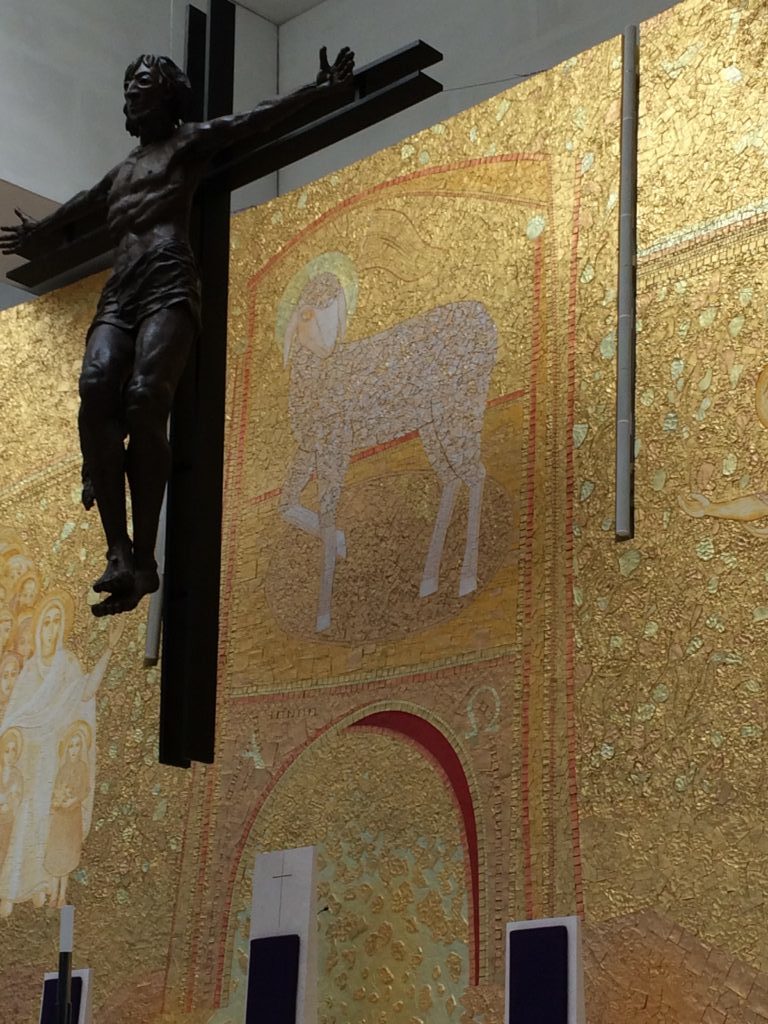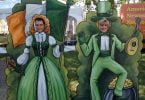by Olivia Martin
olivia.martin@theleaven.org
This has been the worst Lent of my life.
As a reporter, normally I try to begin my articles with a statement that delivers a measure of shock that sometimes requires craft.
But I have not needed any craft this time — this Lent has been shocking.
It has been filled with challenges and sorrow — from friends dying to witnessing marriages and relationships falling apart to supporting friends struggling with mental illness to personally being unable to speak with someone I love. It’s begun to seem like this is all that life has to offer.
As I write, I’m trying to think of a way I can turn this reflection around, say something about a soothing lesson I’ve learned that can cover up all of the pain of this Lent.
But I don’t have the words for that right now.
All I can do is tell a story.
A couple months ago, I went to New York City to a cultural event called New York Encounter. It began years ago as the result of a desire to have a space and moment of dialogue among people of different spheres, work, interests, religions, cultures, and histories.
The weekend was filled with speakers, book presentations, musical performances, exhibitions, and friendship.
I attended a panel on the life of Dorothy Day. Cardinal Timothy Dolan of the Archdiocese of New York, Tom Cornell, the former managing editor of The Catholic Worker, and Margaret Laracy, a clinical psychologist and curator of an exhibit on Day, spoke about Day’s impact on their lives, whether from knowing her personally or through her writings and works.
I was volunteering as a reporter at the event and was more excited about the panel line-up than the subject, so I didn’t come with a load of expectations.
I didn’t expect to meet a friend.
Many people know Day as a social activist and the founder of The Catholic Worker Movement. But less known is the value of her riotous past — her civil marriage, her abortion, her radical political views, her sorrow.
In the process of listening to each speaker, it became clear that Day could not have accomplished or even dreamed of accomplishing what she did through the Catholic Worker without those wounds.
Those wounds cut to the center of her being, exposing her to a deep loneliness that had been silent yet blaring all of her life, leaving her to ask what this longing, this loneliness, was for.
I picked up a copy of her autobiography, “The Long Loneliness,” last week with the same question and began reading.
Instantly, I was struck by the epigraph on the first page by Mary Ward, an English nun who lived at the turn of the 17th century:
“I think, dear child, the trouble and the long loneliness you hear me speak of is not far from me, which whensoever it is, happy success will follow . . . The pain is great, but very endurable, because He who lays on the burden also carries it.”
Is that not Lent itself: the long loneliness for Christ’s resurrection?
Is that not life itself, in essence: a long loneliness for the One who fills it?
Day chose that epigraph, those words, as the introduction to the story of her life. So, we can say, that they are — in a way — her life, and all of our lives, in a nutshell.
Life is a long loneliness. And Day’s question persists: What’s it for?
I found a friend through that question and an answer I must re-ask and re-verify every day: Christ’s resurrection from death — from pain, from loneliness — corresponds to every desire of the human heart. Only someone infinite can fill the infinite loneliness and need of humanity.
In getting to know Day, she, along with countless holy men and women before her, has shown me again that the way to live is not by covering up or suffocating pain and suffering.
It is in the loneliness, the pain, the wounds — in embracing them — that Christ meets us. We join in his cross even more during Lent.
But, man, I can’t wait for Sunday.







